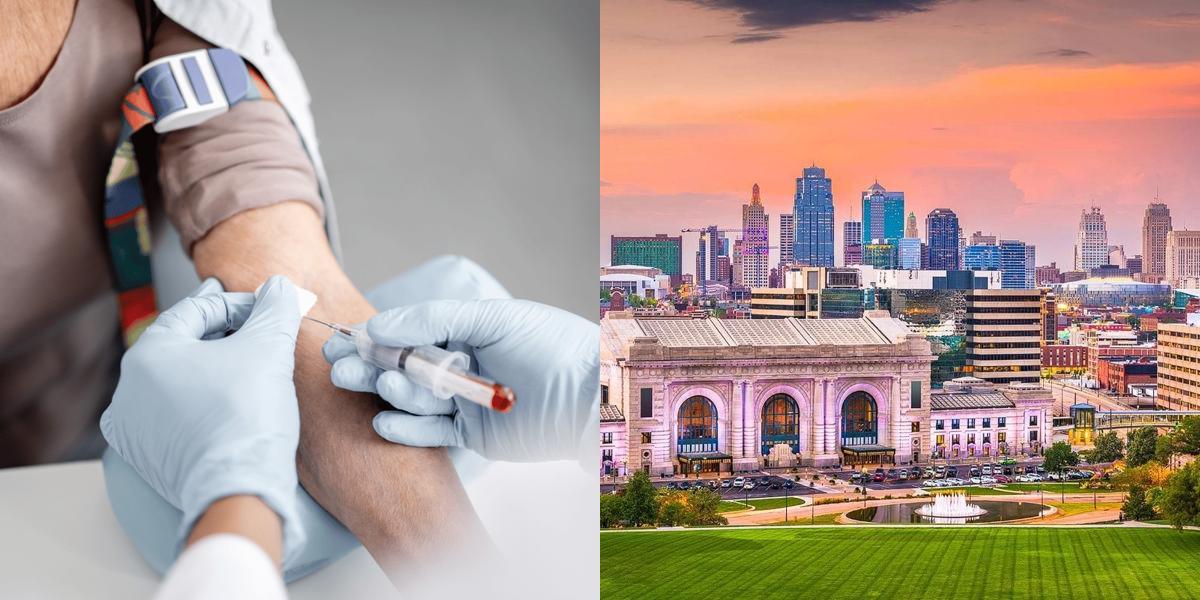How to Become a Phlebotomist in Missouri (2025)

Starting a career as a phlebotomist in Missouri offers a fast entry into the healthcare field, strong job stability, and opportunities for advancement. This guide answers the most common questions from people interested in phlebotomy training, certification, and career options in Missouri. It’s designed for anyone considering healthcare work, whether you’re changing careers, seeking a first job in medicine, or exploring short-term training programs.
According to the Bureau of Labor Statistics (May 2024), phlebotomists in Missouri earn an average of $41,330 per year ($19.87/hour). Employment is projected to grow 8% through 2033, faster than average.
Where to Find Phlebotomy Classes in Missouri
Dreambound is the largest platform for finding and comparing vocational training programs. You can:
- Search phlebotomy classes by city.
- Compare tuition, schedules, and reviews.
- Explore financial aid and employer-sponsored options.
How Long Does It Take to Become a Phlebotomist?
The process is very fast compared to other medical careers.
- Training: 5 to 16 weeks (depending on if you choose an accelerated or semester-based program).
- Certification: You can often take the exam immediately after graduating.
- Total Time: Realistically 2 to 4 months from start to hired.
What About Licensing in Missouri?
Missouri does NOT require a state license for phlebotomists. This means you do not need to apply to a state board to work. However, do not confuse "licensing" with "certification." National certification (NHA/ASCP) is voluntary legally, but mandatory practically for getting hired at major hospitals like Barnes-Jewish or Mercy.
Career Paths and Opportunities after Becoming a Phlebotomist
Phlebotomy can be a stepping stone to roles such as:
Medical Laboratory Technician (MLT): Performing diagnostic testing in laboratories. Registered Nurse (RN): With further education, transitioning into direct patient care roles. Phlebotomy Supervisor: Managing and training phlebotomists in healthcare settings. Research Lab Technician: Assisting in clinical trials and medical research
Frequently Asked Questions
How much does phlebotomy training cost in Missouri?
Tuition varies by school but typically ranges from $950 to $2,500. Some employer-sponsored programs may offer free training in exchange for a work commitment.
Is the NHA exam hard?
It is challenging but passable with study. It covers anatomy, safety protocols, and order of draw. Accredited programs are designed specifically to help you pass this test.
Can I take a phlebotomy course online?
You can do the bookwork online, but you cannot become a competent phlebotomist without in-person practice. Avoid any "100% online" certification that does not require a clinical externship; employers will likely not recognize it.
Final Thoughts
Becoming a phlebotomist in Missouri is a practical way to enter healthcare quickly and build a stable career. Completing training, earning certification, and connecting with reputable employers can set you up for long-term success.
If you’re ready to start, explore Missouri phlebotomy programs on Dreambound and take the first step toward your new career.
Dreambound offers a window into various career paths, so if you're considering a shift in your career, browse through these articles:

Athena is Co-founder and CEO of Dreambound.




